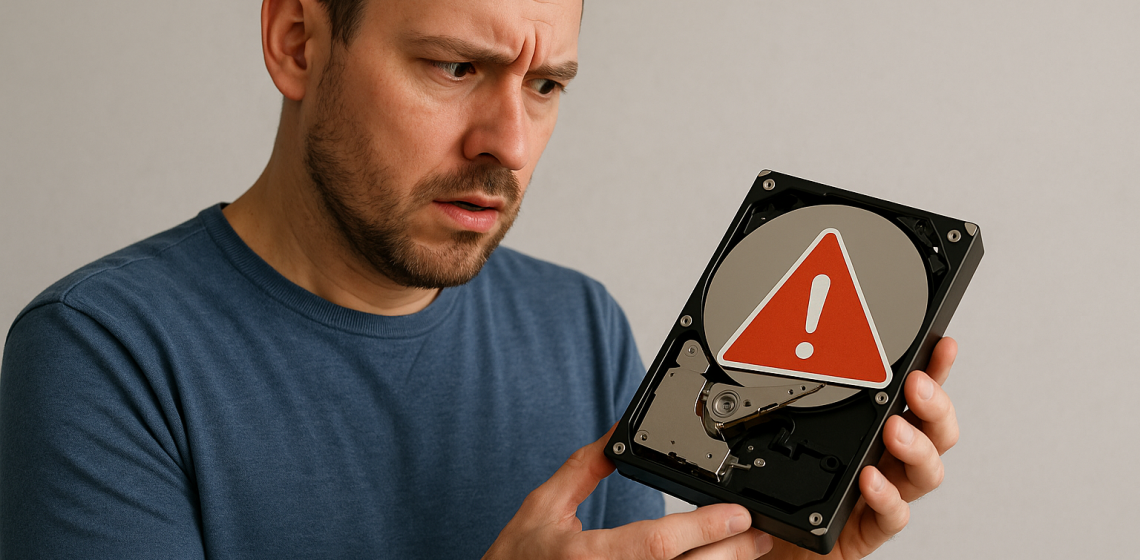The Hidden Dangers of Reselling Old Hard Drives

- Ravi Kumar
- Published on
Upgrading to new technology is exciting, but what happens to the old hard drives left behind? For many, reselling seems like an easy way to recover some costs. Yet, beneath this convenience lies a serious security threat. Without proper protection, old drives can expose sensitive information to strangers. At Fidelity Height, we know that addressing hard drive resale risks is not just smart — it’s essential.
Why Reselling Hard Drives is Risky
- Residual Data
Simply deleting files or formatting does not guarantee that information is gone. In fact, multiple studies have revealed that a majority of second-hand hard drives sold online still contain recoverable data. These hard drive resale risks make second-hand markets a goldmine for hackers. - Legal & Compliance Issues
Regulations like GDPR, HIPAA, and other data-protection laws demand complete sanitization before disposal. Failure to ensure secure data disposal can result in financial penalties, lawsuits, and reputational damage. - Business Impact
Old drives often hold intellectual property, customer records, or confidential financials. If leaked, these can hurt competitiveness and permanently damage trust.
How Secure Data Disposal Protects You
True protection goes beyond simply deleting files. Effective disposal practices include:
- Hardware-based Encryption: Using self-encrypting drives (SEDs) compliant with the TCG Opal standard ensures data is encrypted at rest. Even if drives are lost or sold, the data remains locked.
- Sanitization Certificates: Verified proof that data has been wiped or drives reset to factory state — critical for audits and compliance.
- Physical Destruction: When drives reach end-of-life, shredding or degaussing ensures permanent destruction.
With Fidelity Height’s Opal Lock Premium, users can encrypt, sanitize, and generate compliance-ready certificates — closing the gap between IT policy and real-world execution.
Best Practices for Second-Hand Drives Security
If reselling or reusing drives is unavoidable, businesses and individuals should adopt these best practices:
- Encrypt Before Use: Always enable Opal encryption from day one.
- Reset with Certified Tools: Solutions like Opal Lock Standard allow you to securely reset drives and verify erasure.
- Maintain Chain of Custody: Track drives from start to finish; never leave disposal unmonitored.
- Work with Trusted Vendors: Choose only IT asset disposal partners who meet NIST 800-88 standards.
- Back Up First: Once securely sanitized, recovery is impossible — so keep a safe backup.
Real-World Lesson
Security researchers have repeatedly demonstrated that buying second-hand hard drives often leads to finding private photos, emails, or even sensitive business data. Simple steps like encryption and verified sanitization could prevent such incidents. Tools such as Opal Lock provide organizations with the confidence that drives are securely wiped — avoiding both financial loss and reputational damage.
How Fidelity Height Helps
At FidelityHeight, we simplify enterprise-level security with user-friendly tools. Our solutions help you:
- Manage Opal-compliant SED drives with ease.
- Lock, unlock, and monitor drive health.
- Reset and sanitize drives securely.
- Generate sanitization certificates for compliance audits.
By integrating Opal Lock into your IT lifecycle, you ensure that no sensitive data ever walks out the door.

